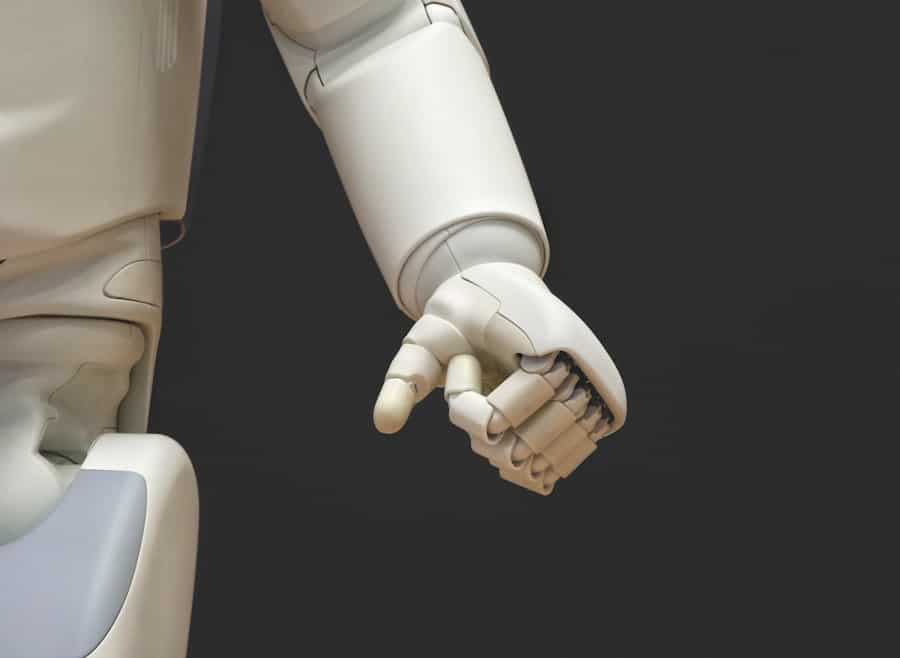Artificial Intelligence (AI) has emerged as a transformative force across various sectors, and its impact on technology teams is particularly profound. As organizations strive to remain competitive in an increasingly digital landscape, the integration of AI into tech teams has become not just advantageous but essential. AI technologies, ranging from machine learning algorithms to natural language processing, are reshaping how teams operate, communicate, and innovate.
The infusion of AI into tech teams is not merely about automation; it represents a paradigm shift in how teams approach problem-solving, project management, and collaboration. The adoption of AI tools and systems allows tech teams to harness vast amounts of data, enabling them to make informed decisions quickly and efficiently. This capability is crucial in an environment where speed and adaptability are paramount.
By leveraging AI, tech teams can streamline workflows, enhance productivity, and foster a culture of continuous improvement. As we delve deeper into the various roles AI plays within tech teams, it becomes evident that its potential extends far beyond mere operational efficiency; it is a catalyst for innovation and strategic growth.
Key Takeaways
- AI is revolutionizing the way tech teams operate, offering new opportunities for efficiency and innovation.
- AI plays a crucial role in helping tech teams adapt to changing environments and respond to challenges with agility.
- Implementing AI tools can enhance team collaboration and communication, leading to improved productivity and creativity.
- AI can be leveraged for skill development and training within tech teams, enabling continuous learning and growth.
- Utilizing AI for predictive analysis and decision making empowers tech teams to make informed choices and drive strategic outcomes.
The Role of AI in Building Adaptive and Agile Tech Teams
Real-time Insights for Informed Decision-Making
In today’s fast-paced tech landscape, the ability to adapt quickly is crucial for success. AI-driven tools can analyze market trends and user behavior in real-time, providing teams with valuable insights that inform their strategies and project directions. This enables tech teams to respond promptly to changing market demands and stay ahead of the competition.
Enhanced Responsiveness through AI-Driven Feedback Analysis
AI algorithms can process user feedback from various platforms, allowing teams to identify pain points and areas for improvement almost instantaneously. This responsiveness enables tech teams to iterate on their products more effectively, ensuring they remain aligned with user needs. By leveraging AI-driven feedback analysis, teams can refine their products and services to meet the evolving needs of their users.
Automating Routine Tasks for Strategic Focus
AI enhances the agility of tech teams by automating routine tasks that often consume valuable time and resources. By delegating repetitive functions to AI systems, team members can focus on higher-level strategic initiatives that require human creativity and critical thinking. For example, AI can automate code reviews or testing processes, significantly reducing the time developers spend on these tasks. This not only accelerates the development cycle but also empowers team members to engage in more innovative problem-solving activities, ultimately leading to a more dynamic and responsive team environment.
Implementing AI to Enhance Team Collaboration and Communication

Effective collaboration and communication are cornerstones of successful tech teams, and AI can significantly enhance these aspects. AI-powered collaboration tools facilitate seamless communication among team members, regardless of their geographical locations. For instance, platforms like Slack or Microsoft Teams have integrated AI features that help prioritize messages, summarize discussions, and even suggest relevant documents based on the context of conversations.
These capabilities ensure that team members remain informed and engaged, reducing the likelihood of miscommunication or information silos. Additionally, AI can analyze communication patterns within teams to identify potential bottlenecks or areas for improvement. By examining how information flows between team members, AI systems can provide insights into collaboration dynamics, highlighting which individuals or groups may be underutilized or overburdened.
This data-driven approach allows team leaders to make informed decisions about resource allocation and team structure, fostering a more balanced and effective collaborative environment. Furthermore, AI can facilitate virtual brainstorming sessions by generating ideas based on previous discussions or current trends, thus enriching the creative process.
Leveraging AI for Skill Development and Training in Tech Teams
The rapid evolution of technology necessitates continuous skill development within tech teams. AI can play a crucial role in identifying skill gaps and tailoring training programs to meet the specific needs of team members. By analyzing performance data and project outcomes, AI systems can pinpoint areas where individuals may require additional training or support.
For example, if a developer consistently struggles with a particular coding language or framework, an AI-driven learning platform can recommend targeted resources or courses to help them improve. Moreover, AI can facilitate personalized learning experiences that cater to individual learning styles and paces. Adaptive learning technologies utilize algorithms to assess a learner’s progress and adjust the curriculum accordingly.
This means that team members can engage with training materials that are most relevant to their current skill levels and career aspirations. Such tailored approaches not only enhance the effectiveness of training programs but also foster a culture of continuous learning within tech teams, empowering individuals to take ownership of their professional development.
Utilizing AI for Predictive Analysis and Decision Making in Tech Teams
Predictive analysis powered by AI is revolutionizing decision-making processes within tech teams. By leveraging historical data and advanced algorithms, AI systems can forecast trends, user behaviors, and potential project outcomes with remarkable accuracy. This capability allows tech teams to make proactive decisions rather than reactive ones, significantly enhancing their strategic planning efforts.
For instance, an e-commerce tech team might use predictive analytics to anticipate seasonal shopping trends, enabling them to optimize inventory levels and marketing strategies ahead of time. Furthermore, AI-driven decision-making tools can assist in risk assessment by evaluating various scenarios based on historical data. For example, if a tech team is considering launching a new product feature, an AI system can analyze past launches’ success rates under similar conditions to provide insights into potential risks and rewards.
This data-driven approach minimizes uncertainty and empowers teams to make informed choices that align with their overall objectives. As a result, tech teams can navigate complex challenges with greater confidence and clarity.
Overcoming Challenges and Risks in Integrating AI into Tech Teams

Potential Biases in AI Algorithms
If the data used to train AI systems is not representative or contains inherent biases, the outcomes may perpetuate existing inequalities or misinform strategies.
To mitigate this risk, tech teams must prioritize transparency in their AI models and continuously monitor their performance against diverse datasets.
Resistance to Change and Fear of Job Displacement
Another challenge lies in the resistance to change that often accompanies the introduction of new technologies. Team members may feel apprehensive about adopting AI tools due to fears of job displacement or a lack of understanding of how these systems work.
Fostering a culture of openness and collaboration around AI integration will be crucial in overcoming these hurdles and ensuring a smooth transition.
The Future of AI in Building More Adaptive and Agile Tech Teams
Looking ahead, the future of AI in tech teams appears promising as advancements continue to unfold at a rapid pace. Emerging technologies such as generative AI are set to redefine how teams approach creativity and innovation. For instance, generative design tools can assist engineers in exploring countless design alternatives based on specified parameters, leading to more efficient solutions that may not have been conceived through traditional brainstorming methods.
Moreover, as AI becomes increasingly sophisticated, its ability to understand natural language will enhance human-computer interactions within tech teams. This evolution will enable more intuitive interfaces for collaboration tools, allowing team members to communicate with AI systems using everyday language rather than technical jargon. Such advancements will further democratize access to AI capabilities across diverse roles within tech teams, empowering individuals at all levels to leverage these tools effectively.
Embracing the Potential of AI for Tech Team Success
The integration of AI into tech teams represents a significant opportunity for organizations seeking to enhance their adaptability and agility in an ever-evolving landscape. By harnessing the power of AI for collaboration, skill development, predictive analysis, and decision-making processes, tech teams can position themselves for success in a competitive environment. However, it is essential for organizations to navigate the challenges associated with AI integration thoughtfully and proactively.
As we move forward into an era defined by technological innovation, embracing the potential of AI will be crucial for tech teams aiming to thrive in their respective fields. By fostering a culture that values continuous learning and adaptation while leveraging the capabilities of AI, organizations can unlock new levels of creativity and efficiency that drive success in the digital age.
In a recent article on smartwatches, the potential for wearable technology to enhance productivity and efficiency in the workplace was explored. This ties in with the discussion on building more adaptive and agile tech teams through AI integration. By leveraging smartwatches and other wearable devices, teams can stay connected and informed in real-time, leading to better collaboration and decision-making. Additionally, the article on affiliate marketing niches highlights the importance of staying ahead of trends and adapting to changing market demands, which are key principles for building agile tech teams. Lastly, the article on the best software for newspaper design underscores the significance of utilizing the right tools and technologies to streamline workflows and enhance creativity, essential elements for fostering adaptability and agility in tech teams.
FAQs
What is AI?
AI, or artificial intelligence, refers to the simulation of human intelligence processes by machines, especially computer systems. These processes include learning, reasoning, and self-correction.
How is AI used in tech teams?
AI is used in tech teams to automate repetitive tasks, analyze large amounts of data, improve decision-making processes, and enhance overall productivity and efficiency.
What are the benefits of AI in building tech teams?
The benefits of AI in building tech teams include improved efficiency, faster problem-solving, better decision-making, and the ability to handle large volumes of data and tasks.
What are the challenges of integrating AI into tech teams?
Challenges of integrating AI into tech teams include the need for specialized skills and knowledge, potential job displacement, ethical considerations, and the risk of bias in AI algorithms.
How can tech teams adapt to the future of AI?
Tech teams can adapt to the future of AI by upskilling and reskilling their workforce, fostering a culture of continuous learning, embracing AI as a tool for augmentation rather than replacement, and addressing ethical and societal implications of AI.

